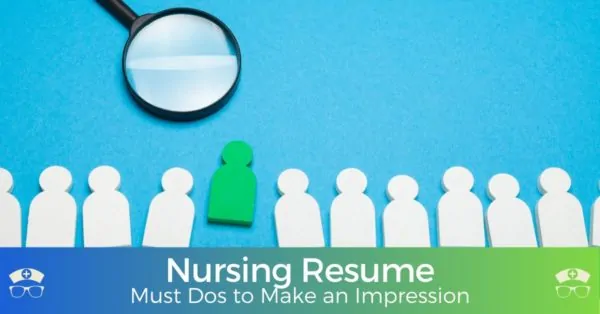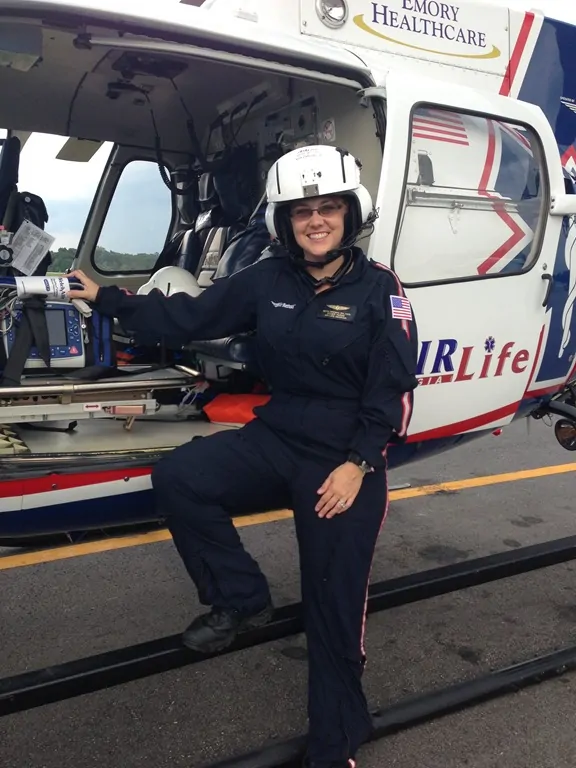When choosing a career, people are often faced with choosing between two good options. Nurse practitioner vs nurse anesthetist is considered advanced practice nurses who have high-stakes decision-making responsibilities in their respective fields.
It is essential to know about your career options before choosing your path in nursing. People who wish to be part of this field will find that the two types of nursing careers offer different job opportunities to best prepare them. So today, we will explore the differences between nurse practitioner vs. nurse anesthetist and what each profession has to offer.
What is a Nurse Practitioner?
Nurse practitioners are experts trained to provide a range of medical services that doctors usually offer. Like doctors, they prescribe medications, perform procedures, and order diagnostic tests. A nurse practitioner can also educate patients about diet, lifestyle changes, disease prevention, and other medically related issues.
According to the Bureau of Labor Statistics, there are sub-specialties within the nurse practitioner profession, including family practice nurses (includes women’s health), geriatric care managers, pediatric care managers, neonatal care managers, adult care managers, and psychiatric/mental health nurses.
The best part about nurse practitioners is that they are recognized as the primary care providers. They are often the first point of contact for patients who require medical attention.
Nurse practitioners can provide primary care to all age groups, including children, teens, adults, and senior citizens. They diagnose illnesses and order treatment that will ultimately improve their patient’s quality of life. They also can manage acute conditions such as infections, injuries, chronic diseases like diabetes and asthma, etc.
Employment of Nurse Anesthetist
Nurse practitioners have a lot going for them when it comes to the job market. Depending on their specialty, NPS has different responsibilities, roles, and scopes of practice. There are many specialties within family medicine, including mental health, pediatrics, and gerontology. As MSN candidates, nurses explore their things, acquiring the necessary skills to excel after graduation.
Psychiatric Nurse Practitioner
These NPs can help diagnose and treat mental, emotional, and behavioral health issues in adults, children, and adolescents. They may perform routine evaluations for mood disorders such as depression. In addition to diagnosing patients with psychiatric problems, these NPs can provide counseling visits to establish treatment plans that incorporate medication or psychotherapy when appropriate.
Neonatal Nurse Practitioner
These NPs care for a newborn with some health issues that were not evident during prenatal testing. Neonatal NPs work in the neonatal intensive care unit (NICU), providing specialty care for infants and their families.
Family Nurse Practitioner
As stated with the name, these types of NPS provides family-centered care in a variety of primary care settings, including:
• School/work settings (e.g., health and wellness clinics)
• health fairs and community events
• Hospitals
Pediatric Nurse Practitioner
Pediatric nurse practitioners provide care for children from birth to age 21. They work in various settings, including physician’s offices and healthcare clinics. Because pediatricians might not be available in all locations, pediatric nurse practitioners provide care for common illnesses and injuries, administer immunizations, and develop health care plans.
Gerontological Nurse Practitioner
These NPs work with older adults to maintain their independence and promote their well-being.
In general, they will help people age successfully by:
• Assessing an older adult’s medical and social needs and developing a personalized plan of care that promotes independence and enhances the quality of life
• Promoting healthy lifestyles through education about diet, exercise, disease prevention/management, etc.
• Collaborating with healthcare professionals to meet individual needs such as medication management or nursing home placement when necessary
Nurse Practitioner Annual Salary
The salary rate of NPs depends on their experience and in which state they are working. Because nurse practitioners have years of training and experience, they are entitled to a higher salary. Nationally, the median annual wage for NPs is $110,030. NPS with earnings in the bottom tenth percentile draw means yearly wages of $78,300, while those in the 90th percentile enjoy a mean average salary of about $150,320 each year.
The Top-Paying States for Nurse Practitioners
Following are the top 5 states in the united states where NPs have a higher salary:
- New York: $120,970 (Per Year)
- California: $133,780 (Per Year)
- Florida: $111,060 (Per Year)
- Texas: $101,100 (Per Year)
- Ohio: $101,970 (Per Year)
How to Become a Nurse Practitioner?
If you are wondering how you can become a nurse practitioner, you have to read this article till the end. There are many ways to become a nurse practitioner; you have to choose the one that fits best for your background and personality traits.
There are five significant steps that degree holders should follow if they want to become successful as NP:
1) First, prospective NPs should earn a bachelor of science in nursing degree (BSN)
2) After earning a BSN, graduates may take the NCLEX-RN examination to qualify for an RN license.
3) The next step would be to attend a master of science in nursing program (MSN)
4) After earning MSN, degree-holders must pass ANCC’s NP specialty certification exam. NPS needs to earn this board certification to practice independently.
5) During the last step, NPS will earn a postgraduate certificate in their specific NP area of advanced practice. It allows them to provide more advanced care and clinical services.
What is a Nurse Anesthetist?
Certified registered nurse anesthetists (CRNAs) are considered advanced practice nurses who perform many duties similar to doctors while under the supervision of a medical doctor or surgeon. The most common role of nurse anesthetists is administering anesthesia for patients about to undergo surgery. They also monitor the patient’s vital signs during the procedure and offer pain relief after surgery.
Nurse anesthetists have a significant role in surgical procedures. After receiving special training, they will administer life-saving drugs and utilize various equipment, including a ventilator or heart machine, to keep the patient safe during surgeries that require general anesthesia, regional anesthesia, sedation, and monitored anesthesia care.
Since nurse anesthetists have been specially trained in giving injections, monitoring vitals, and interpreting X-rays to identify potential problems with patients before they become more severe issues, this makes them unique from other nurses.
Nurse Anesthetist Job Duties
The Nurse anesthetists’ job duties include:
• Collaborating with surgeons and other related health providers to plan for a patient’s surgery, tests, or treatment.
• Anesthetists prepare the surgical area by scrubbing according to surgical standards.
• They will also adjust needles, tubes, and other equipment before surgery begins.
• Nurse anesthetists are in charge of administering anesthesia to patients during surgeries that require it. This includes injections, inhalation drugs, or monitoring the patient’s comfort level throughout the surgery.
• They also monitor the patient’s vital signs and adjust anesthesia accordingly during surgeries, which can vary in time (some take an hour or two; others may last much longer).
• Nurse anesthetists document any problems they identify in a patient’s record and communicate clearly with other surgical team members.
• They help patients recover from anesthesia and provide pain relief.
How Much Does a Nurse Anesthetist Make?
The average Certified Nurse Anesthetist salary in the United States is $192,514 as of November 29, 2021, but the range typically falls between $176,910 and $210,032. The salary ranges from $77,950 to $202,074 in California.
The salary of a Nurse Anesthetist depends on many factors like geographical location (cost of living), experience level (years at the same job), education (amount of degrees held), and certifications (specialty or board certification). Nurse anesthetists pursuing higher education may earn better salaries because they have earned a master’s degree, which is necessary for eligibility to take boards and become certified as a nurse anesthetist.
The Top-Paying States for Nurse Anesthetist
Following are the top 5 states in the united states where nurse anesthetists have a higher salary:
- Wyoming: $243,310
- Montana: $239,380
- Oregon: $234,750
- Wisconsin: $233,600
- California: $227,290
How to Become a Nurse Anesthetist?
To become a CRNAs, you have to meet a criterion which includes:
- The first step toward becoming a CRNA is to obtain a BSN. Before enrolling in an MSN program, BSN-degree holders can take the NCLEX-RN exam and acquire their RN license.
- The second step is to gain some experience as an RN by taking on clinical rotations. This is where you will gain the hands-on experience necessary to become a CRNA.
- After gaining clinical experience and earning your license as an RN, it is time to make a master’s degree in nursing.
- An MSN degree will allow you to become a CRNA.
- Once you have completed your degree, the next step is applying for certification by taking and passing the certifying exam provided by AANA (American Association of Nurse Anesthetists).
One more fantastic thing is that nursing students considering a CRNA career can explore distance learning opportunities that will allow them to study and work simultaneously.
Tips for Choosing Between Becoming a CRNA or an NP
Choosing a nursing program is still your choice, and you need to be sure that the program meets your learning style and career goals. Just follow these three-step processes to determine which career is right for you.
Organize Your Priorities
When choosing between CRNA and NP, start by organizing your priorities. This will help you eliminate the career option that does not meet your needs.
Assess Your Abilities
Nursing is a very demanding profession. It would be best if you were honest with yourself about whether or not you are ready for this challenge. Everyone has unique abilities, and to make an informed decision, you must assess yours. If you discover that nursing may be too difficult for you at any time in the future, then changing your mind about becoming a CRNA or nurse practitioner before investing in expensive education courses would be the best choice.
Make a final decision.
After gathering all information about both options, think about their benefits and disadvantages before making up your mind. Remember, both possibilities are rewarding and fulfilling careers. In the end, it is up to you which path do you think would be most beneficial for your future.
The End
Now you have all the information you need to decide between CRNA and NP careers. Remember that your education is the key to opening up unique opportunities for you. Choose wisely, but do not forget to think about what it is that drives your passion.





